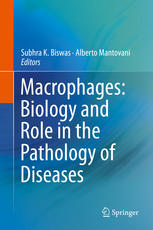

Most ebook files are in PDF format, so you can easily read them using various software such as Foxit Reader or directly on the Google Chrome browser.
Some ebook files are released by publishers in other formats such as .awz, .mobi, .epub, .fb2, etc. You may need to install specific software to read these formats on mobile/PC, such as Calibre.
Please read the tutorial at this link: https://ebookbell.com/faq
We offer FREE conversion to the popular formats you request; however, this may take some time. Therefore, right after payment, please email us, and we will try to provide the service as quickly as possible.
For some exceptional file formats or broken links (if any), please refrain from opening any disputes. Instead, email us first, and we will try to assist within a maximum of 6 hours.
EbookBell Team

0.0
0 reviewsMacrophages are a key component of the innate immune system and play an integral role in host defense and homeostasis. On one hand, these cells contribute to host defence by triggering inflammation, displaying microbicidal/tumoricidal properties, regulating the activation of adaptive immunity and promoting resolution of inflammation. On the other hand, they contribute to essential trophic functions such as neural patterning, bone morphogenesis and ductal branching in mammary glands. Thus, macrophages are extremely versatile cells that can respond efficiently to tissue micro environmental cues by polarizing to distinct phenotypes, depending on the functions they need to perform. Indeed, functional diversity and plasticity are hallmarks of these cells.
Macrophages may also play a detrimental role. An overwhelming body of literature has indicated their crucial role in pathogenesis. The list includes sepsis, cancer, metabolic syndrome, immunodeficiency, auto-immune disease-virtually impacting every major pathology that we know. These observations have suggested macrophages and their related molecules as potential targets in therapeutic applications. Available evidence proclaims macrophages as a key player in homeostasis, host defense and disease. Crucial developments in the past few years call for a re-evaluation and update of our understanding of macrophages. The present book is an endeavour that attempts provide state-of-the art knowledge of these cells in health and disease.